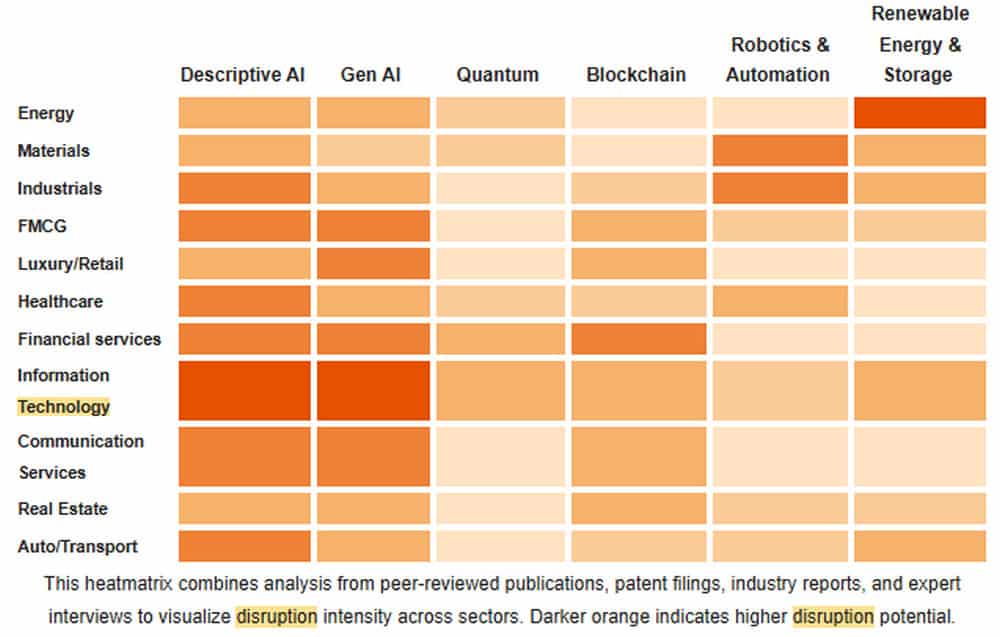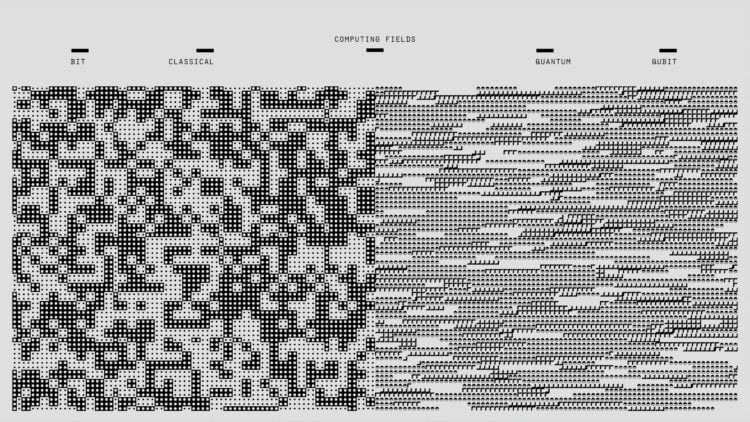ESSEC Business School's Digital Disruption Chair has released its "Digital Disruption Matrix 2025," a strategic tool assessing the impact of six key technologies across 11 industries. The matrix reveals generative AI as the dominant force, scoring 89.45/100, significantly outpacing other technologies.

This reflects the rapid growth and transformative potential of generative AI, which is already impacting how we work, create, and innovate. Experts predict that by 2030, 70% of job skills will be impacted by AI, and businesses are increasingly integrating AI to improve productivity and revenue.
While generative AI captures headlines, the matrix highlights the continued importance of descriptive AI, which underpins many business processes. Renewable energy and storage maintain a strong position with a score of 40.42/100, demonstrating their cross-sector impact.
This aligns with industry trends showing increased investment in renewable energy, driven by commitments to emissions reduction. Solar PV is expected to account for a significant portion of cleantech investments, surpassing investments in upstream oil and gas for the first time in 2025.
However, the matrix also raises concerns about energy availability as a potential bottleneck for innovation. The increasing demand for power from emerging technologies strains energy infrastructure, underscoring the need for advancements in energy storage solutions. Grid saturation and instability remain key challenges for the renewable energy industry, requiring upgrades to handle increased electricity use.
Other technologies assessed include quantum computing, robotics & automation, and blockchain. While quantum computing is seen as a future transformation vector, professionals express uncertainty about its near-term impact. Robotics and automation benefit from AI-driven simulations, while blockchain's impact remains below expectations despite renewed interest in cryptocurrencies [3].
The Digital Disruption Matrix reveals sector-specific nuances, such as the automotive sector's skepticism towards blockchain and the luxury sector's ambivalence towards generative AI. Real estate, however, shows strong enthusiasm for renewable energy technologies. As Singapore and other nations continue to invest in digital transformation, tools like the Digital Disruption Matrix provide valuable guidance for strategic decision-making.



